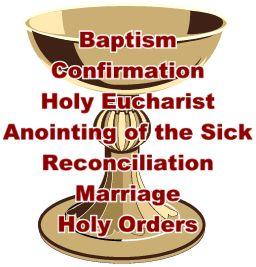
The Crux of the Matter 4
Topic: The Seven Sacraments and Their Frequency
By Fr. Wade Menezes, CPM
The Fathers of Mercy
The seven Sacraments and their normative frequency; that is, how often we should receive them…what does the Church teach in this regard?
Three of the Sacraments can only be received once. That’s it. Once. This is because of the “spiritual character” or the “indelible mark” they leave on the Christian soul, never to be erased. These three Sacraments are Baptism, Confirmation and Holy Orders.
Two of the Sacraments, that is, Confession and Eucharist, can be received both repetitiously (that is, “again”) and frequently – daily if you want them, provided it’s not scrupulosity that is leading one to daily Confession.
The last two Sacraments, Matrimony and the Anointing of the Sick, can be received repetitiously but not frequently. In other words, they can indeed be received “again” (for example, if your spouse dies, you can remarry), but they’re not received daily. The Anointing of the Sick can be received whenever one begins to be in danger of death because of sickness or old age. And for those in a persistent illness state, say, with cancer, the Anointing of the Sick can be received monthly – and again, whenever one’s health condition worsens.
Rooted deeply in Sacred Scripture and upheld by Sacred Tradition and the Magisterium of the Church, let us remember that each Sacrament is an efficacious sign of grace, instituted by Christ and entrusted to the Church, by which divine life is dispensed to us through the work of the Holy Spirit. I remember my Sacramental Theology professor at seminary teaching us men that each Sacrament, when worthily received, is a “meeting with Lord Jesus” – literally. In other words, the mystery of Christ made present; this is the reality each Sacrament affords us when it is received worthily.
